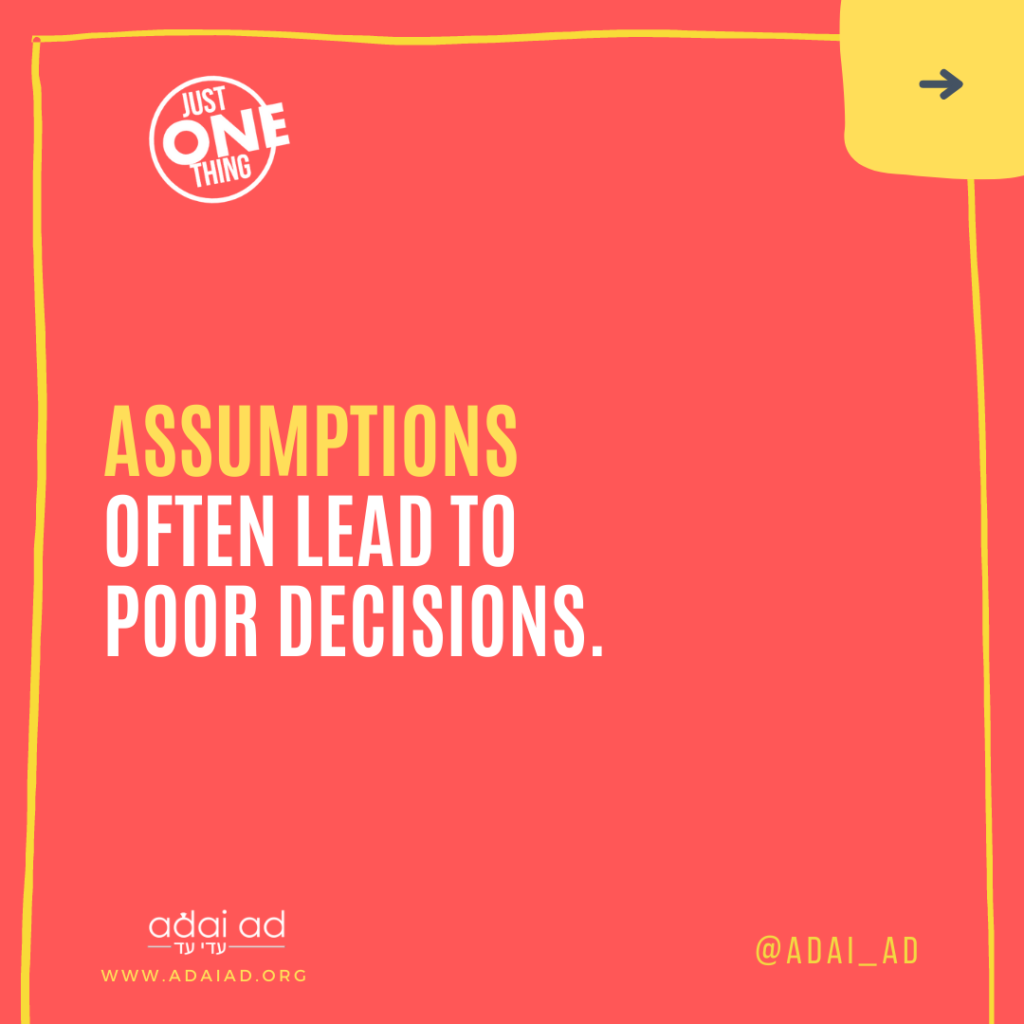“Assuming” is accepting something as true – without proof. It is deciding a thought you are having is a fact – when you don’t have all the information.
Assumptions can be quite detrimental – especially when you make choices and decisions based on little more than a good (or not so good) guess.
Too often, we make assumptions because we are seeing things from our own unique perspective and value system. Which are rarely the same as the other person.
You would leave without saying goodbye if you were upset, you assume that they are upset when they left without saying goodbye.
While you can know what you observed, you really don’t know the whole story. You don’t know their intentions, feelings or thoughts. Or the backstory.
If your thoughts begin with: “I’m sure that…”, “I can tell that…”, “I just have a feeling that…”, or “obviously, he/she…”… then you are probably assuming.
Not sure if you are making an assumption? Ask yourself the following: What facts do I have to prove this thought is true? What am I basing this on? What else might be going on here?
Instead of assuming, ask. With genuine curiosity.
(The problem with assuming is that it leaves the other person feeling judged, undervalued, unheard, or like they were never given a chance.)


